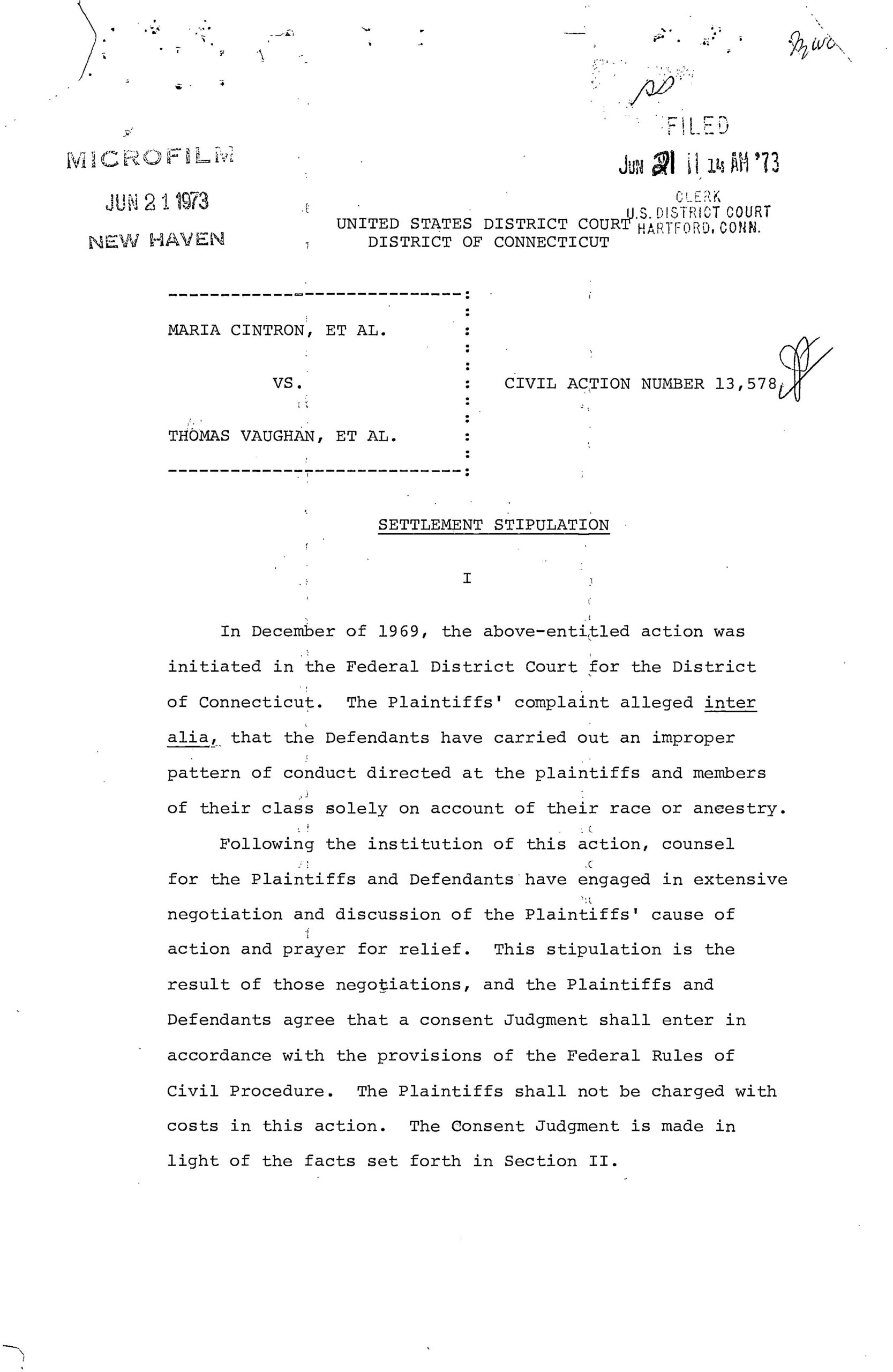SUMMARY: The period of the 1960s has come to be defined by powerful social uprisings against the systemic racial discrimination perpetuated by de facto segregation in educational, legal and social systems. Entirely intertwined with these spheres of violence is the use of excessive force as a weapon of control by law enforcement agencies, as a means to physically uphold these systems of racial discrimination. As December 1969 closes out the decade, members of the Black and Latinx community in Hartford, Connecticut file a class action lawsuit against the Hartford Police Department for subjecting them to unconstitutional and senseless violence. This class action lawsuit would come to be known as Cintron v. Vaughan.


